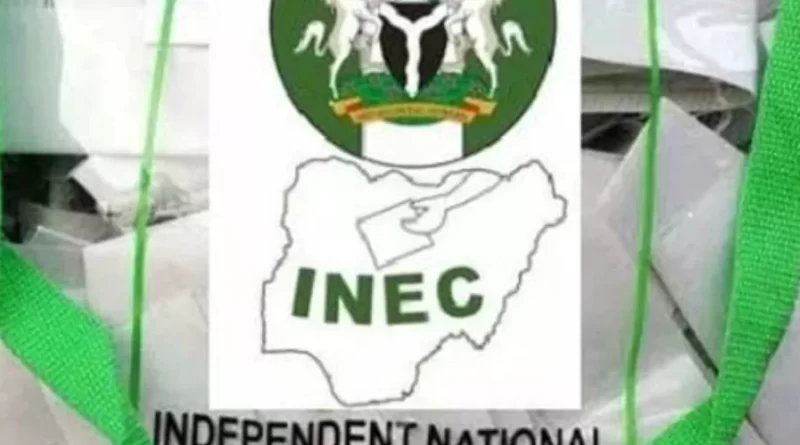Political Parties demand end to presidential appointment of INEC chairman, top officials
Political parties under the umbrella of Inter-Party Advisory Council (IPAC) are demanding immediate legal reforms to strip the executive arm of government of its power to appoint the chairman, secretary, and national commissioners of the Independent National Electoral Commission (INEC), warning that the nation’s democracy is under threat as long as the electoral umpire remains in the grip of the presidency.
They stressed that the change is essential to safeguard the commission’s independence and restore public trust in Nigeria’s electoral system.
They made this demand on Monday in Abuja during a consultative meeting between the House of Representatives Committee on Constitution Review and leaders of political parties. The session, chaired by Benjamin Okezie Kalu, Deputy Speaker, brought together lawmakers, party leaders, and civil society representatives to deliberate on key amendments to the 1999 Constitution.
Yusuf Dantalle, national chairman of IPAC, the umbrella body of registered political parties said Nigeria’s democracy can only thrive when INEC operates free from executive interference.
He proposed the establishment of an Independent Appointment Committee (IAC) to oversee the appointment of top electoral officials.
“To promote the independence of the commission, the power to appoint the chairman of INEC, its secretary, and national commissioners should be taken away from the executive,” Dantalle said.
“We propose an Independent Appointment Committee composed of representatives from all registered political parties, civil society organizations, the National Judicial Council, and the National Assembly. This will ensure transparency and inclusivity in the appointment process,” he added.
Dantalle further outlined IPAC’s wider reform agenda, which includes granting financial autonomy to local governments, scrapping state independent electoral commissions, restoring funding for political parties, establishing an electoral offences tribunal, and creating special legislative seats for women.
According to him, these measures are crucial to ensuring credible elections and strengthening democratic governance ahead of the 2027 general elections.
In his opening remarks, Kalu, the deputy speaker described the constitutional review as a defining moment in Nigeria’s democratic journey. He said the House Committee is committed to making the process inclusive, transparent, and reflective of the aspirations of all Nigerians.
“If constitutional amendments are to be legitimate, they must have the buy-in of political parties. This process must not serve the interests of the few but strengthen institutions, empower citizens, and renew confidence in our democracy,” Kalu noted.
Kalu also reaffirmed the committee’s commitment to ensuring greater representation of women in governance, fiscal independence for local governments, and an electoral system that reduces post-election disputes.
Godswill Akpabio, the Senate President in his goodwill message, commended the initiative of the House Committee and stressed that credible elections and justice are the bedrock of peace and stability in any democracy.
“When elections fail, trust dies. When justice delays, faith decays. We must strengthen INEC, shield our courts from corruption, and restore the people’s confidence in their institutions. True federalism begins at the grassroots, and local governments must be freed to function effectively”, Akpabio said.
He also expressed strong support for women’s inclusion in governance, recalling his previous efforts to sponsor a bill for special seats for women in the National Assembly.
Also speaking at the event, Amina Bryhm, president, national women leaders forum of political parties in Nigeria, described the proposed Special Seats Bill for Women as a “bold step toward correcting historic imbalances.”
“The special seats bill represents a call to action,” she said. “Together, we can turn our focus into action and our aspirations into reality,” she said.

